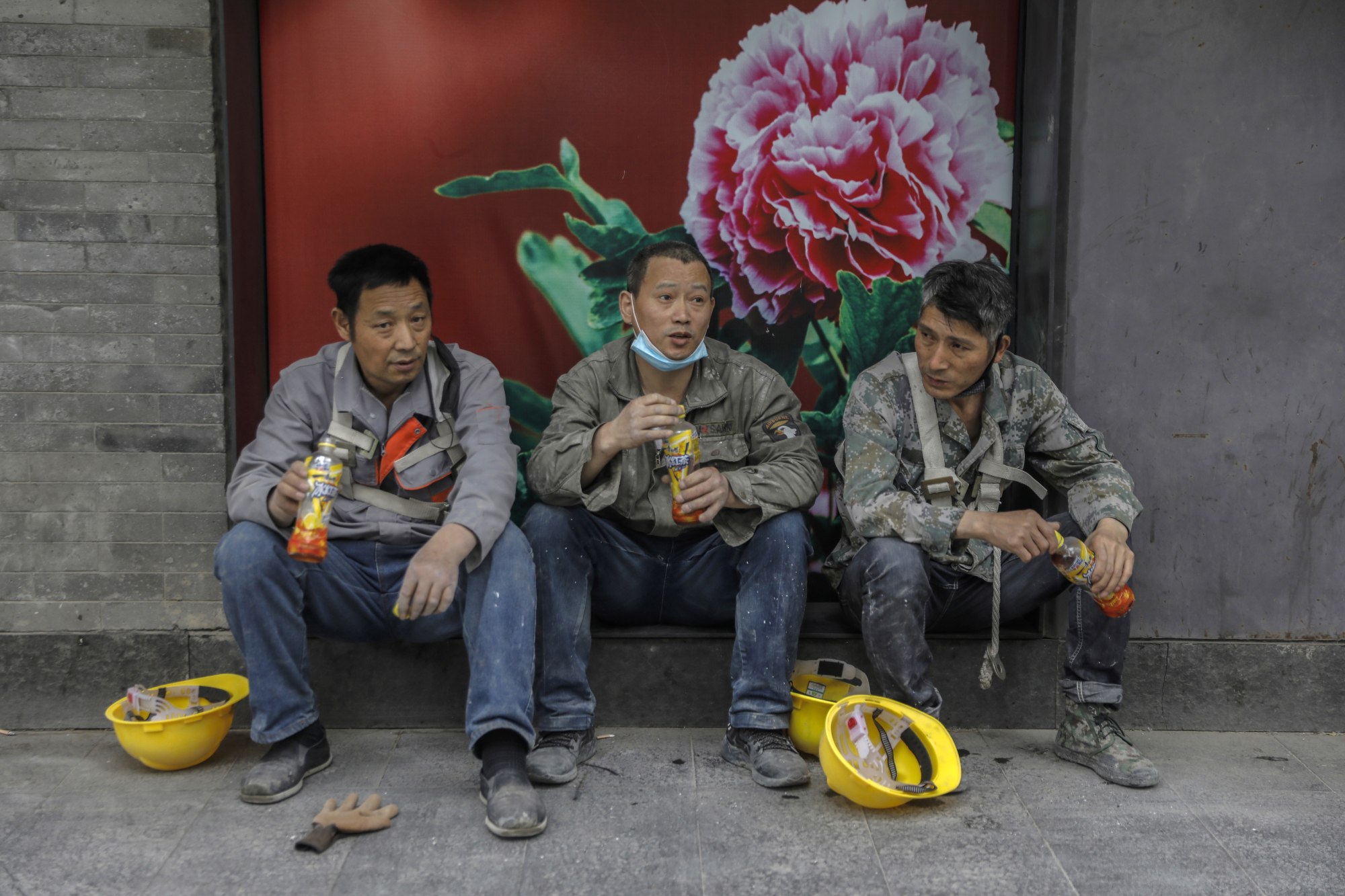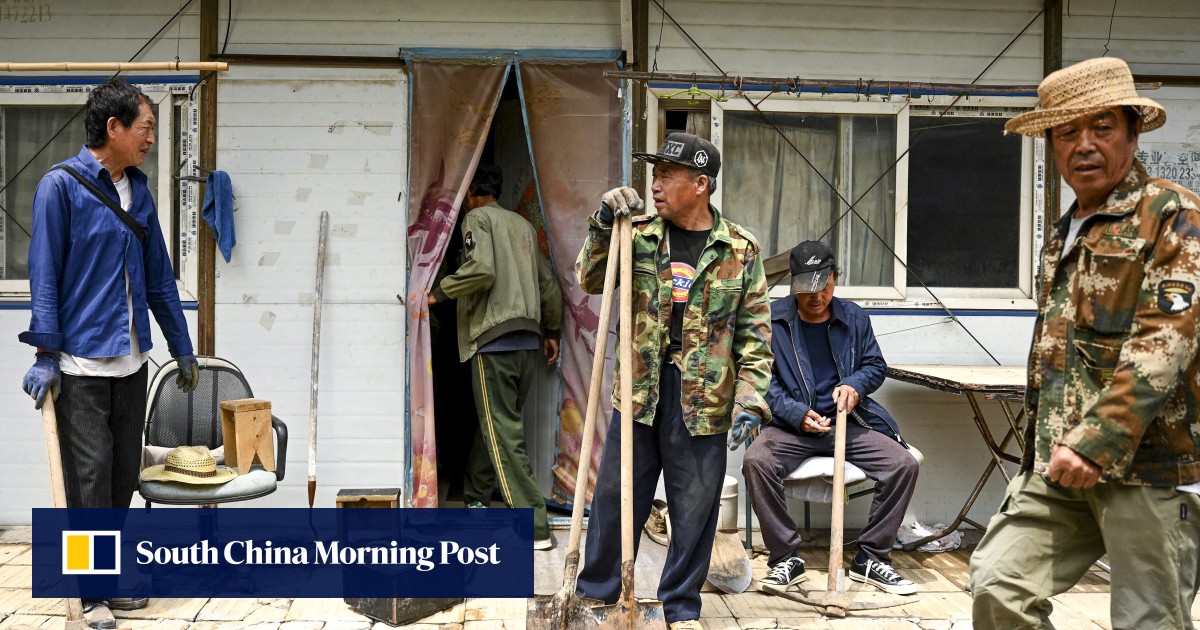The year-end is a time of widespread wage arrears, and local governments should investigate such cases to identify hidden problems so that all dues are settled as soon as possible, Shen told the conference.
“It is necessary to severely punish intentional salary delay … [and] help migrant workers solve any temporary problems they might have with their daily lives,” Shen said.
She also called for a long-term mechanism to resolve the wage arrears issue once and for all.
China’s millions of rural migrant workers come to the big cities for jobs in construction, the service industry, and factories including iPhone manufacturer Foxconn. Lunar New Year is often the only time they can go back home for family reunions, and extra cash is welcome ahead of the festivities. The next new year holiday starts on February 10.
Several local governments have already swung into action to ensure labour payments are cleared this month. In special focus are real estate companies, as the property market struggles to return to profit under China’s sluggish post-pandemic recovery.
Major cities and factory hubs Tianjin, Chongqing and Suzhou have offered policy support for manufacturing, retail and foreign trade companies facing a drop in orders and profits, so that they can ensure salaries are paid on time and avoid mass lay-offs.
Shaanxi province, a major industrial base in the northwest, has asked companies to use emergency cash or other channels to pay advance wages.

A political scientist who requested anonymity told the Post that local governments launched similar campaigns almost every year, but this year was special because many companies were suffering from financial difficulties as the economy struggles to make a post-Covid recovery.
According to official data, China had 295.6 million migrant workers in 2022, making up more than a third of the working population. More than 60 per cent of those were men, earning a monthly average of 4,386 yuan (US$618). Their average age was 42.3, a historic high suggesting that migrants were carrying on working for longer.
Migrant workers have largely powered China’s rapid urbanisation, but are often underpaid and denied the social security benefits available to contracted workers, given the unregulated nature of the migrant labour market.
Many find jobs through relatives and friends, working for individuals or small companies that do not sign contracts with them, thus cheating them out of social security benefits. Some also get paid only quarterly or annually, and arrears often pile up at the end of the year.
China’s desperate migrant workers jostle for jobs – losing means no food or bed
China’s desperate migrant workers jostle for jobs – losing means no food or bed
This time, the arrears issue could affect social stability, the political scientist said, with the economic slowdown hurting everyone.
“In the past, we have seen migrant workers who were owed wages kill themselves or kill their employers,” he said.
In 2020, an interior decorator in Zhejiang province stabbed his employer’s son to death after being repeatedly denied his pay.
Local media reports said the worker was owed 15,000 yuan for two months, but the employer kept saying he did not have the money. The accused was later sentenced to death by a court in Zhejiang.







